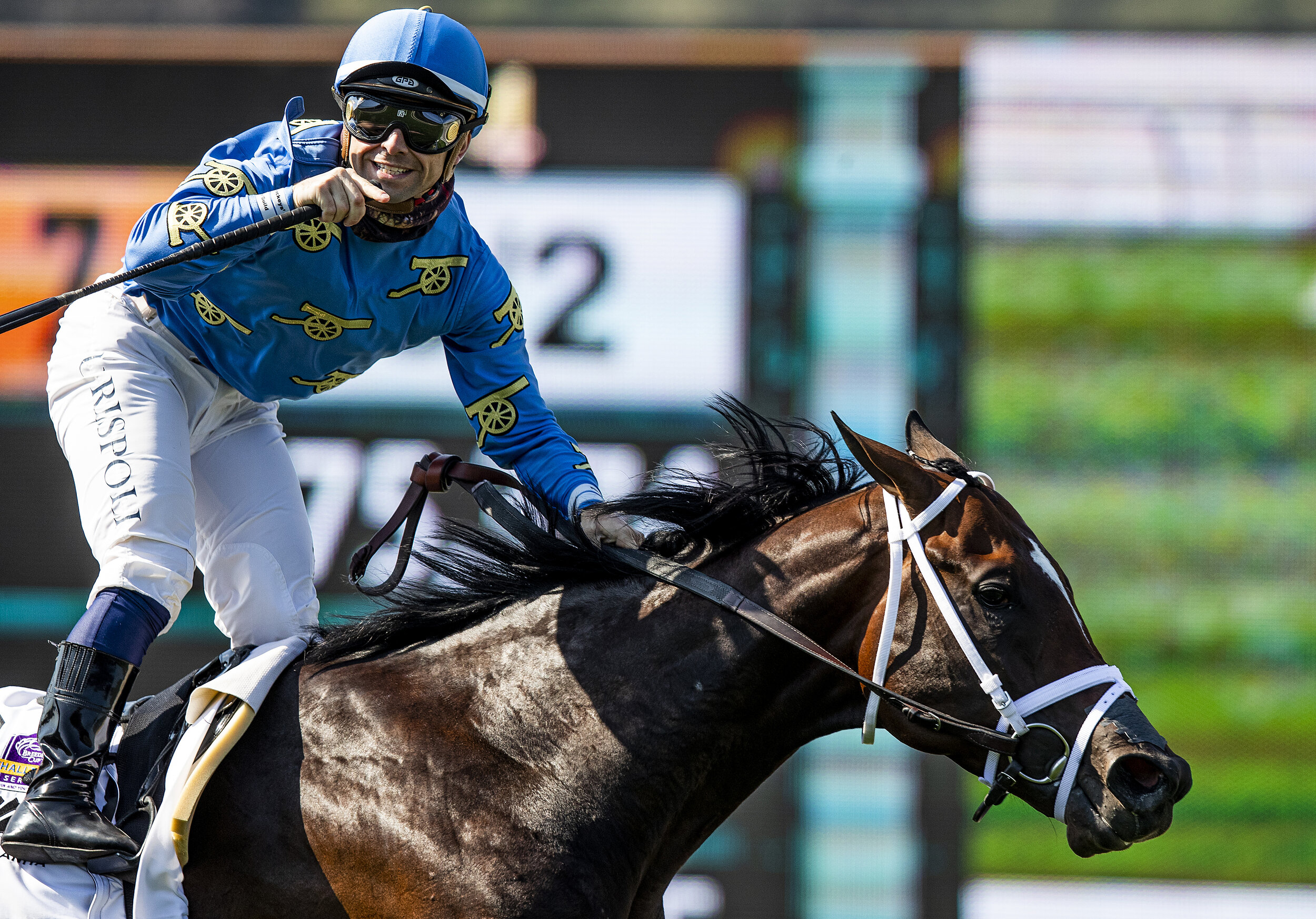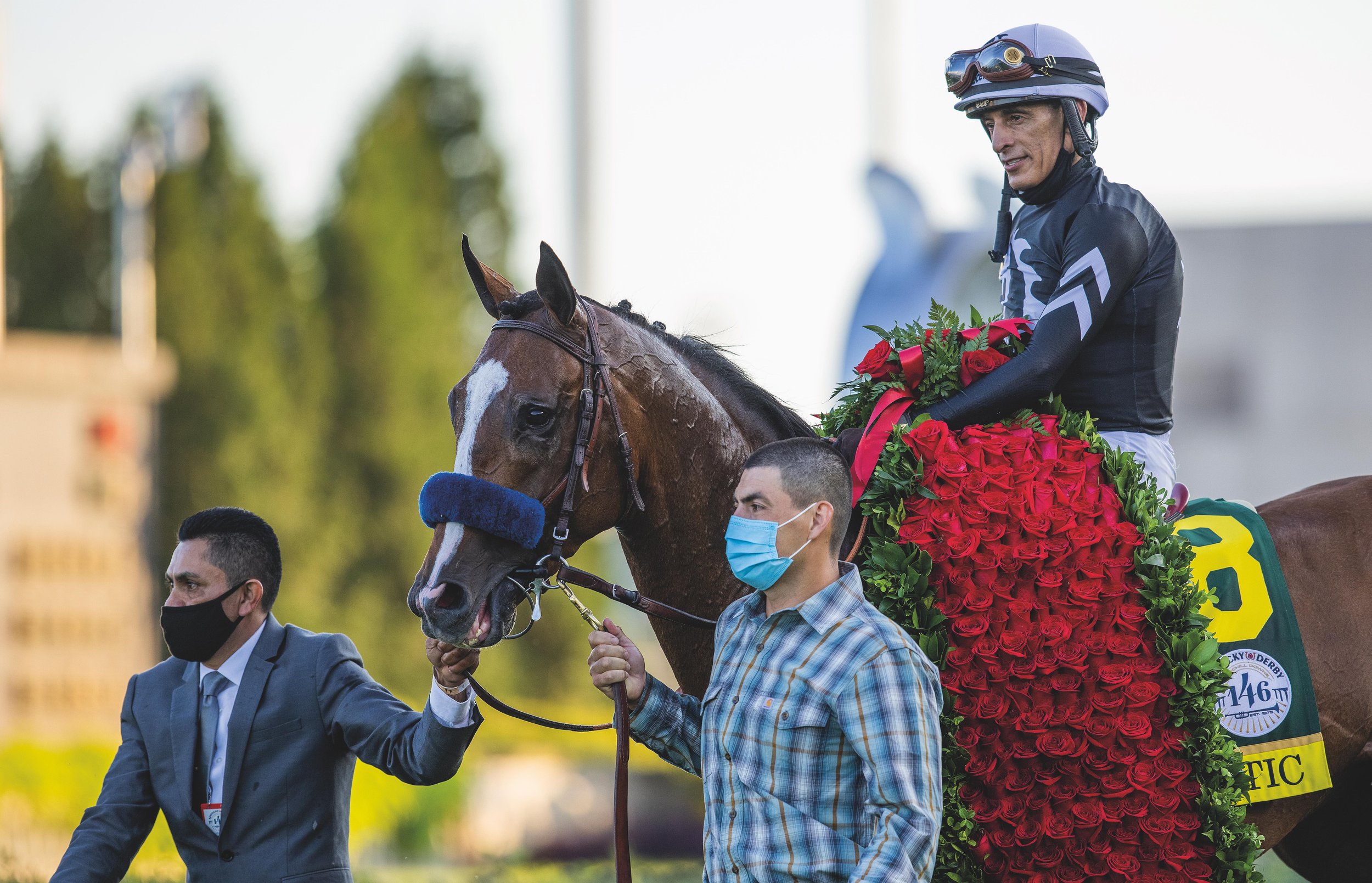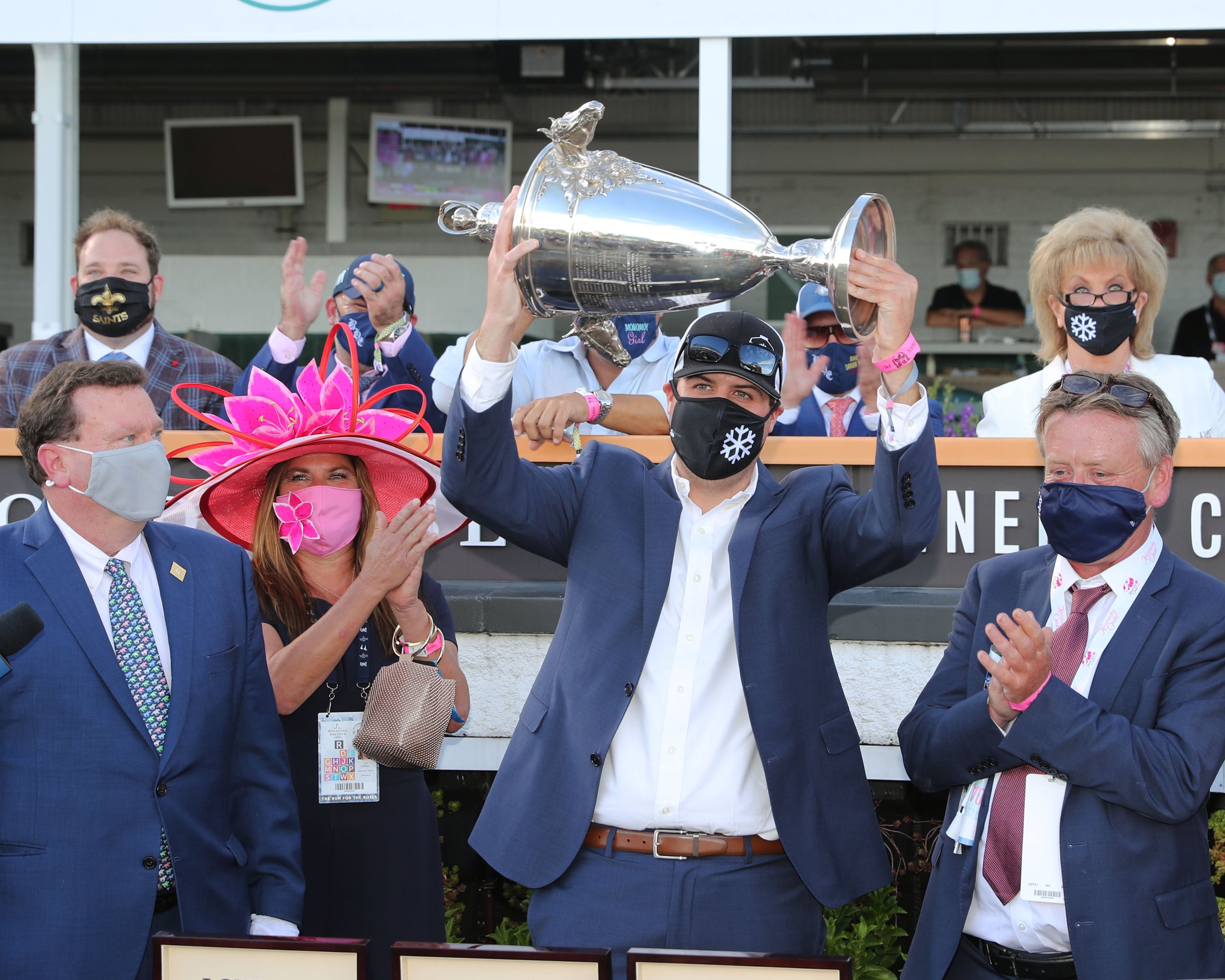Michael Cannon - Cannon Thoroughbreds
/Michael Cannon (Cannon Thoroughbreds) - Smooth Like Strait
Michael Cannon, a multiple success in business, was in unfamiliar territory with his Thoroughbreds. “I was a failure,” he said. “I’m not lying. I was a complete failure. I took full responsibility. I bred Smooth Like Strait. Then he ran his first race and was a real disappointment. I told my wife he was our last chance of success. I was starting to undo Cannon Thoroughbreds. I spent a lot of money, and I got very little reward. You have to know in business when to pull the plug. I was looking to get out of the business.”
Fortunately for the Cannons, Smooth Like Strait didn’t take long to show his immense talent—taking Michael, Jennifer and their four children, Cole, Chloe, Camryn and Cooper on the ride of a lifetime. His last eight starts have been in graded stakes with four victories, two seconds, a third and a fourth against elite turf company. “He turned it around,” Cannon said. “We’re back and stronger than ever.”
Cannon has spent most of his adult life helping companies do exactly that: getting strong. The 52-year-old president and CEO of Cannon Nevada, a venture capital firm based in Henderson, has started or acquired 22 businesses. Zero have gone bankrupt. “I’m pretty good at cutting out the bull****, simplifying and getting down to making money,” he said. “So far, I’m always looking to share with others. I do like helping other people. It’s not all about the money. It’s really about success. I just keep trying new things. Some work, some don’t. I’m too dumb to quit. So I keep working. Fortunately, I’ve been more successful than not.”
His interest in horses came at an early age. “My dad loved racing, and my mom was from Nevada. I spent a lot of time in Nevada. I knew horses very well.”
His mother, however, didn’t let him pursue his interest in music or football. “I played trumpet, but she wouldn’t let me practice at home,” he said. “She also wouldn’t let me play football in high school. And I was fast.”
When he attended Alan Hancock Junior College in Santa Maria, Calif., he made the football team as a freshman and was a starter at wide receiver in his second season. “I was the only white receiver—a white kid with red hair—with really talented African Americans from inner cities,” he said. “They came from rough neighborhoods. I didn’t even know how to put the pads on. They taught me everything. These guys became good friends.”
Following junior college, Cannon received a bachelor of science degree from Boston University’s School of Management, an advanced certificate in negotiation from Harvard University and an advanced certificate in mergers and acquisition from UCLA.
He had an incredible experience in 1988 while doing an internship in London. He even had tea with Diana, Princess of Wales. “There was a new American Institute of Foreign Studies, and about six of us out of 300 were allowed to meet her,” he said. “I had to take two days of classes for protocol. They take that protocol very seriously. Just learning how to shake hands took an hour. You can’t squeeze her hand. When she finally showed up, she couldn’t have been any nicer. She was prettier in person than she was in pictures. She didn’t give a damn about all that protocol. She grabbed my hand and seized it.”
While in college, he bought his first horse—a $1,000 weanling named Achillean Spirit. “He ran at Golden Gate and tracks in Utah and Nevada and was very successful on that small circuit: Beaver City, Utah, and Ely and Elko, Nevada,” Cannon said.
Then he began syndicating horses as Sport of Kings Syndication. He did that for three years and took a hiatus from horse racing to focus on his rapidly advancing business career. He founded and led Warehouse Las Vegas, Accurate Courier and 4Wall Entertainment before founding Cannon Nevada in 2018.
Eight years earlier, he had reconnected with Thoroughbreds, posting minimal success. He purchased Smooth Like Straight’s granddam, Beautiful Lil. She produced Smooth Like Straight’s dam, Smooth as Usual. He raced her, sold her and got her back after her racing career ended in a sale at Keeneland. She began Cannon’s small broodmare band, based at Columbiana Farm in Kentucky.
Early reports on Smooth Like Strait were incredibly positive from day one. He shared this story with Christine Oser in her October, 22, 2020, story in The Blood-Horse: “The minute he was born, Homer Rader at Columbiana said, `You know what? You’ve got a good one.’ And that’s literally within 24 hours of him being born. I sent him away to be trained at Bill Wofford’s Rimroc Farm in Kentucky. He breaks them and gets them prepped for training, and then he called me up and said, `Smooth Like Strait—this horse is going to win you a graded stakes race.’ I’d never heard that before.”
Then Smooth Like Strait, who is trained by Mike McCarthy, made a dreadful debut, finishing ninth by 20 lengths at Del Mar on August 17, 2019. That abysmal performance was on dirt, and once Smooth Like Strait switched to grass, he became a star—flashing seven victories, three seconds and a pair of thirds in 14 starts while earning more than $900,000.
He could have won a lot more, narrowly missing his first three starts in Gr. 1 stakes. He finished second by a head in the Hollywood Derby, second by a neck in the Francis Kilroe Stakes and third by a neck in the Turf Classic at Churchill Downs. “When you’re coming from nothing, and you’re losing Gr. 1’s by a neck, we were proud as hell. Just to be in a graded stakes was terrific,” Cannon said.
Then Smooth Like Strait broke through, winning the Gr. 1 Shoemaker Mile by a length and a half on May 31. That prompted Cannon to conclude, “I’ve come a long way since 1991 in Beaver City, Utah.”
























